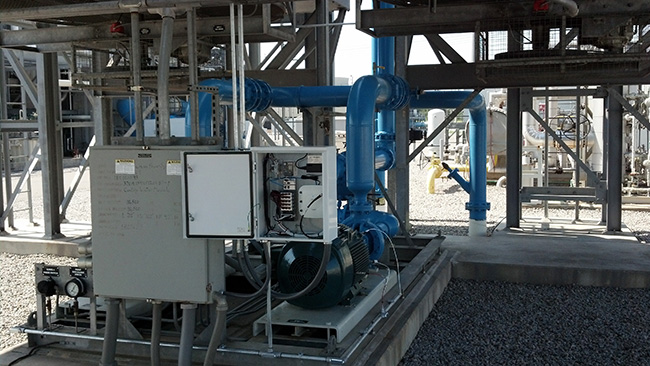Man Vs Machine: This has been a highlighting issue of the modern tech world. Several people are of the opinion that machines will eventually take over human jobs and eventually render human labour irrelevant. However, there is another school of thought that feel that machines will be more of a value addition to human tasks and will take away the repetition from jobs. Brett Burger, NI’s Principal Solution Marketing Manager, in a recent paper argued about automating data collection- a task that has traditionally been done by humans so far. ELE Times’ Sub Editor, Soumyarendra Barik caught up with Brett Burger to understand his perspective behind his paper and ultimately to understand where he stands on the man Vs. machine debate. Excerpts:
ELE Times: Elon Musk himself said that technology is going to take away all our jobs, emphasising specifically on the technology of AI. Do you think that your opinion of automating data collection and removing human interference from it is going to sit well with the industry? Do you think there might be a backlash?
Brett Burger: This situation seems far from new or novel as innovation and automation have disrupted many jobs throughout history. Steam engines, the printing press, mechanized farming, type writers, computers, automated teller machines (ATM), and many more. This automation does reduce the need for human labor, but it also boosts productivity and allows for the emergence of new industries and new innovations.
ELE Times: Apart from the tech industry, your opinion is likely to receive a lot of flak from operations and maintenance professionals. What would you want them to understand from your perspective?
Brett Burger: I have spoken with multiple maintenance professionals that have data problems. These problems take time away from maintenance professionals’ ability to add value to the company. Automation technology will help them. Someone that has spent 20-30 years on the job can diagnose many common faults by listening, smelling, and feeling the heat/vibrations they sense by standing on the plant floor. This is of tremendous value to maintenance operations. But, that same professional often covers multiple plants over multiple cities so they often spend time traveling. How do they know where to go and when to be there? With thousands to tens of thousands of assets, there will be multiple machines that simultaneously have problems. They need to choose where to go. One way to help know is by having access to periodic asset health data. If they are collecting this data via routes, they may spend travel time only to collect data from a perfectly functional asset. All this time traveling or collecting data from healthy assets is time they can’t spend on making reliability-based decisions.

Principal Solution Marketing Manager
National Instruments
Over a 20 or 30 year career, a professional can spend several years performing activities that don’t focus on the value they can add. New technologies – automated data collection as opposed to routes – are helping this group of professionals use their expertise to cover more assets in less time. It won’t eliminate their need to visit a plant; but it will help to make sure that when they do, they know they are standing in front of the asset that is currently the biggest threat to operational availability. NI’s Insight CM application software is an example of a new technology helping maintenance professionals. The experienced reliability engineer with 20-30 years of experience can sit at their laptop anywhere in the world with network access, and diagnose machine health. They can even “hear” what the machine sounds like as if they were on the plant floor because Insight CM will convert high-speed machine vibration data into a WAV file. One minute they are looking at a machine in plant A, and the next minute they are looking at a machine in plant B with access to vibration, motor current, thermography, and electromagnetic signatures all in one software tool. They haven’t automated their job away; they’ve used their experience in two places at once.
ELE Times: Why do you think automating data collection is a good idea as opposed to the more traditional methods that we have become accustomed to all these years?
Brett Burger: The traditional methods have a few inherent drawbacks, and some drawbacks that are a result of macro-economic factors.
If performed by an analyst, collecting data is not an efficient use of their knowledge and experience.
- Periodic rounds are infrequent as compared to automated collection that can happen daily, hourly, or constantly.
- Prone to human error
- Experienced professionals are at or near retirement age and not being replaced in enough numbers so smaller teams are having to manage larger fleets of assets.
- Regular scheduled preventive maintenance can introduce failure modes that weren’t present prior to maintenance.
ELE Times: When do you expect your predictions to come true? And, when they do come true, do you see the involvement of humans as a necessity somewhere else?
Brett Burger: Full, or even majority adoption will vary based on industry. Some industries are more regulated than others, some have downtime that is more expensive than others, and most of these IoT-style solutions take multiple years to put together and install. I think transition to a fully (or mostly)-automated data collection method will be approaching the early majority phase 10-15 years from now. Automating the analysis will take longer, but with the pace of software advancements probably won’t be too far behind.
ELE Times: Let’s talk of a world where most processes are automated – and that is a future where we are perhaps headed to with AI and Machine Learning getting efficient every day. How highly do you rate a human’s skill in that era where most things are dominated by technology?
Brett Burger: Machine learning and AI are performing some amazing analysis across several fields and industries, but I still see human skill needed. Maybe it’s because I’m more of an instrumentation and measurement expert than a machine learning expert, but both supervised and unsupervised learning still require a human to insert intelligence at one end of the process to gain insight. Machine learning can find strong correlations between data coming from sensor 1, sensor 3, and sensor 11; but what does it do with that information? How will that keep the machine running? To put it another way: it seems that ML is helping to automate answers, but aren’t humans still asking the questions?
ELE Times: What is your final word on the ever popular debate of Man Vs. Machine? Do you think machines are eventually going to render human labour and talent irrelevant?
Brett Burger: As soon as we get machines to fulfill all of our needs, I’m pretty sure we begin to want something else that we can’t immediately have.









